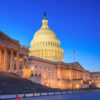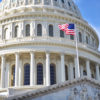A Visa For My Valentine
Date: February 13, 2015
No one wants to be accused of “killing the romance,” especially on Valentine’s Day. Yet, from its burdensome bureaucratic tourist visa processes to its ban on allowing spouses of visa holders to obtain work authorization, the United States is making it difficult for couples to visit, work, and thrive here—and all at the expense of the U.S. economy. Here are three ways in which the United States is currently killing the romance:

For many couples, a romantic getaway is just what they need to keep the flame alive. Each year, however, the United States loses out on billions of dollars in revenue from international tourists due to cumbersome visa requirements for foreign visitors. This past December, PNAE released a study showing that, by expanding the Visa Waiver Program to include six new countries—Brazil, Hong Kong, Israel, Poland, South Africa, and Turkey—the United States could see an additional $7.66 billion in spending and 50,000 American jobs within 5 years. By eliminating many of the hurdles that prevent tourists from trusted countries from visiting the United States—such as having to travel thousands of miles simply for an in-person interview—the U.S. could continue to grow its robust tourism industry, which already employs more than 8 million Americans.

Each year, the United States grants 65,000 high-skilled foreign-born workers with H-1B visas to fill some of the nation’s workforce gaps in fields like science, engineering, technology, and math (STEM). These visa slots fill up quickly with demand soaring well above supply, and many people wait years to obtain an H-1B so they can do things like grow a company or conduct groundbreaking research. But what is more unfortunate is that the spouses of those who are granted H-1Bs are currently not eligible to work in the United States themselves. All hope is not lost, however. Senator Orrin Hatch’s (R-Utah) Immigration Innovation Act, or “I-Squared Act,” which was introduced in January, would direct the Department of Homeland Security to authorize the accompanying spouse of an H-1B visa holder to work in the United States through a provided work permit.

Ah, the promise of young love. Every year, the United States educates hundreds of thousands of foreign-born, international students at its top colleges and universities. Whether inspired by a budding romance or a love for the field they have studied, many students hope to remain in the United States after graduation and pursue their career goals. Often, however, their time is cut short when their Optional Practical Training (OPT) – a temporary employment period granted to foreign students after graduation – expires. If a student is unable to secure sponsorship from an employer and move to a different visa category, then s/he must typically return home to his/her country of origin within a year. Additionally, because the U.S. currently lacks a designated entrepreneur visa, the short OPT period makes it especially difficult for college graduates and professional students to launch their own companies in the United States.
It’s been echoed throughout history that, “Love conquers all.” Yet America’s broken immigration system certainly challenges this age-old adage. Help keep American romance alive and urge Congress to pass smart and sensible immigration reform.


